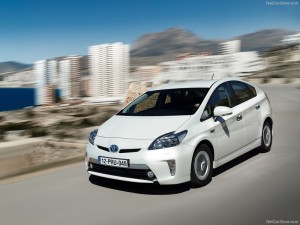Own a hybrid, buy an electric vehicle, lower your eco-footprint, and more importantly, save money at the gas pump – it’s a common and generally convincing argument made by most environmentally conscious consumers in today’s world.
However, with a cumulative number of 3 million hybrid vehicles sold in the United States out of 240 million currently registered car owners AND transportation accounting for just 31% of total carbon dioxide emissions in the country over all – is there really a difference being made by today’s green automotive consumers?

And by how much is each new hybrid or electric drive vehicle owner really going to be helping the environment?
These questions were put into perspective with the release of a new study conducted by North Carolina State University: “How Much Do Electric Drive Vehicles Matter to Future U.S. Emissions?”

As the study found, between now and 2050, “even if Electric Drive Vehicles (EDVs) made up 42 percent of passenger vehicles in the U.S., there would still be little or no reduction in the emissions of key air pollutants.” Higher emission producing power plants, essentially, will continue to effectively wipe out the benefits of EDVs or hybrid cars well into the next half century. However, though I found the logic to hold in the study’s findings, something that I thought might be worth questioning was this last concluding point:
“This study tells us that it makes more sense to set emissions reductions goals, rather than promote specific vehicle technologies with the idea that they’ll solve the problem on their own.”
From my own perspective, I’m inclined to think that, yes, it is very likely that if wide spread emission reduction goals were set and followed by all major industrial production facilities, a noticeable and accelerated reduction in carbon emissions would follow. However, that would only be looking at one side of the big picture. As we continue to discuss in class, ‘thinking green’ or promoting it has the potential to create shared value. By extension, promoting the use of green vehicles lends to that globally developing trend of living an environmentally conscious lifestyle, which in turn affects the actions of key decision makers that can include shareholders, managers, business executives, and policy makers.
So, even if the lasting environmental impact of increasing hybrid car purchases appears to be negligible – I would think that it’s still a cause worth promoting – or, in keeping with this blogpost’s title, worth fighting for.
Great post – I think this is a super important issue. You probably also know that producing Hybrid cars can be very bad for the environment in part because of the rare metals that need to be mined to make the batteries etc. There’s also the ‘licensing effect’ in consumer psychology – doing one good thing gives you ‘license’ to do a bad thing – so maybe people are buying hybrids and end up driving more.
One paper even shows that buying green products makes consumers more likely to cheat and steal! (http://web.missouri.edu/segerti/capstone/GreenProducts.pdf) I think this illustrates how important it is to understand consumer psychology in order to make sure sustainability marketing doesn’t backfire.
I agree that while the impact of low emission vehicles may be negligible it is still worth promoting for because it also promotes a more environmentally conscious lifestyle that’s needed if we are to be truly sustainable in the future. A drawback may be people start to believe that simply driving low emission vehicles is enough to satisfy their duty to building a sustainable world whereas in reality that isn’t the case.